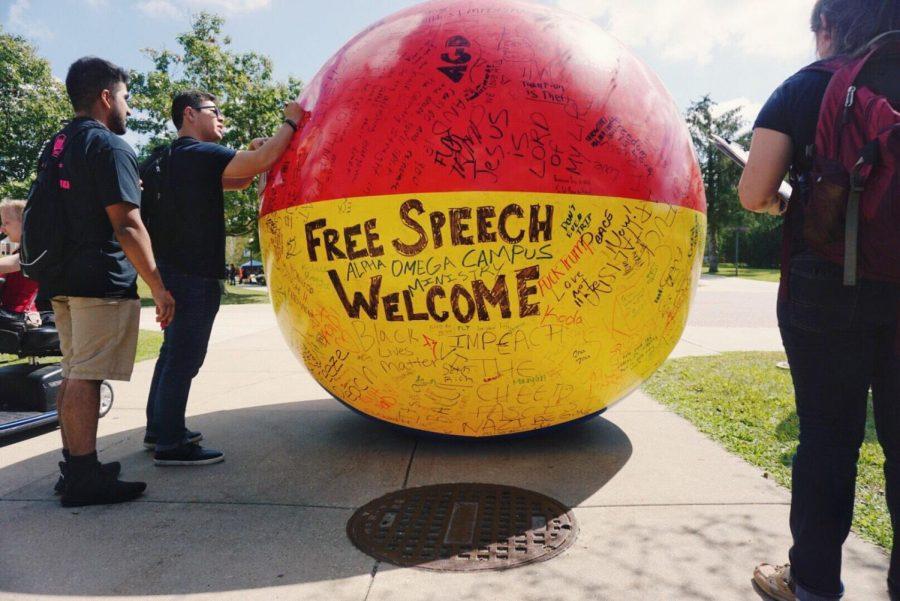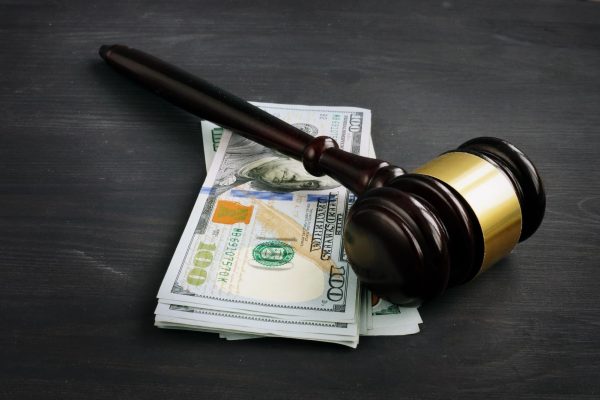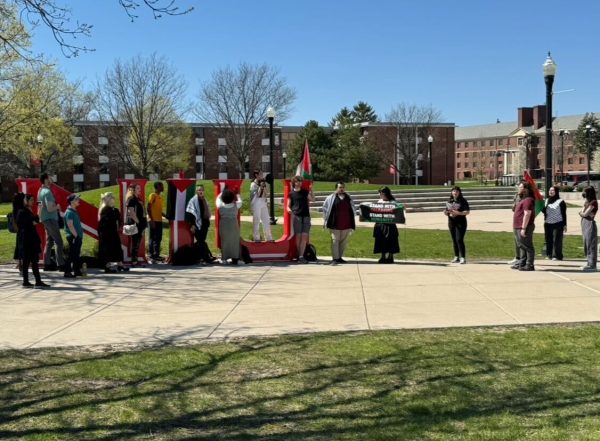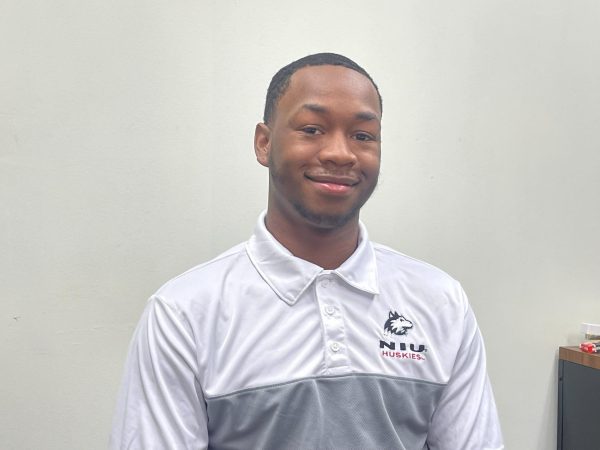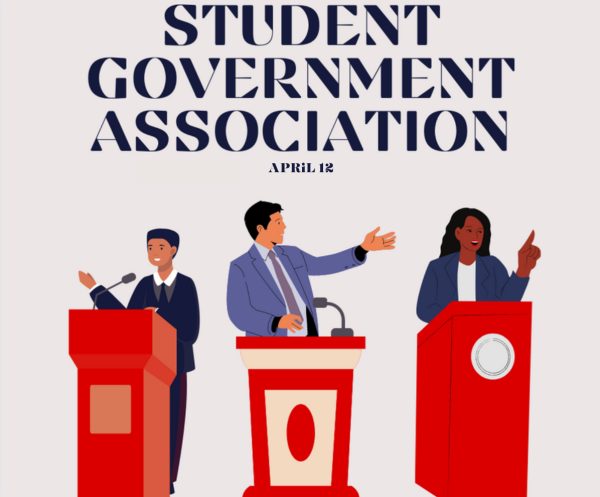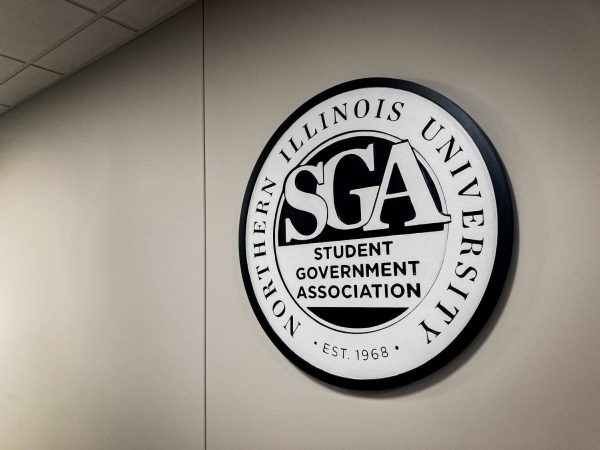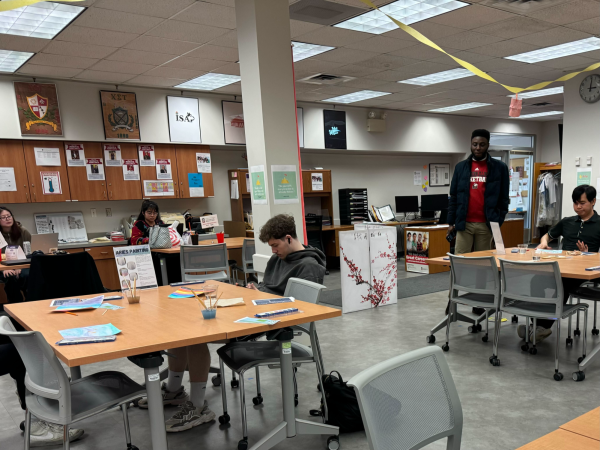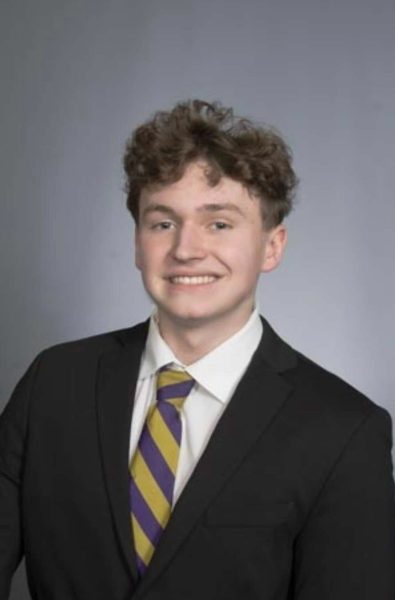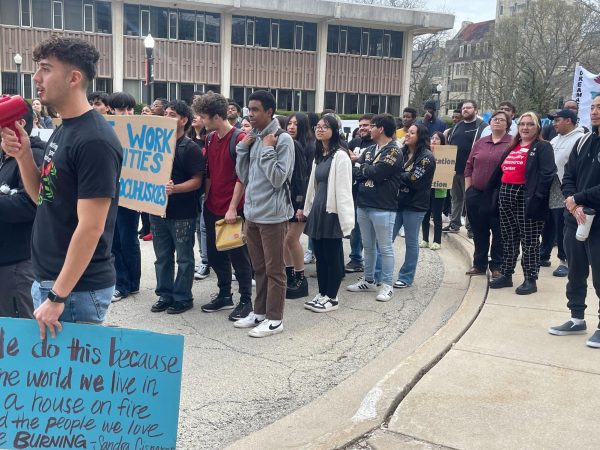Officials commit to free speech
Students sign a “free speech ball,” which was rolled around campus by student organization Turning Point USA Wednesday in MLK Commons.
August 31, 2017
DeKALB — Administrators have made the effort to inform students about their freedoms of expression on campus following the violent rallies that took place at the University of Virginia in Charlottesville earlier this month.
Officials denounced these events based on the nature of the rallies, while also ensuring students had access to the campus Freedom of Expression Policy and any information they may need to be safe in acting upon this policy.
“In light of the tragic events in Charlottesville, [Virginia,] we want to reaffirm Northern Illinois University’s commitment to diversity, equity and inclusion,” said Chief Diversity Officer Vernese Edghill-Walden, Dean of Students Kelly Wesener-Michael and NIU Police Chief Thomas Phillips in an Aug. 15 campus email.
What started as a response to the possible removal of confederate monuments Aug. 11 in Charlottesville, Virginia escalated to a white nationalist rally, according to an Aug. 12 New York Times article. The University of Virginia’s campus was filled with white nationalists, many of whom carried tiki torches.
Counter-protesters gathered during and after the incident, only to incite more violence. A group of counter-protesters was hit by a car Aug. 12, killing one individual and injuring 19 others. President Donald Trump’s national response called for law and order to return to Virginia, according to the article.
“Sometimes it’s easy to look at national news and social media and take stuff that’s happening in other areas and personalize it, and I think it’s going to happen here,” Phillips said in an interview with the Northern Star.
“We have established plans and protocols and policies and procedures of how to deal with situations,” Phillips said. “If anything ever did escalate to the level of Charlottesville, we have plans in place that we would work with our partners from other local agencies, whether it be the town or the county or the state, where if we needed additional resources we’d have them available to us.”
Phillips said NIU officials embrace freedom of expression, and one of the roles his officers fulfill is making sure students can be safe in expressing themselves.
The Freedom of Expression Policy promotes students exercising their First Amendment rights, which protects virtually all forms of speech — even when students express themselves in a way that may be in opposition to the university’s values of diversity and inclusiveness, according to a video posted to YouTube by NIU July 12.
“Sometimes we’ll have an incident where you’ll see something, and we’d say ‘well that’s hate speech,’ ” Phillips said. “While that might not be a crime, that’s definitely something that we want to address. ”
Unity March
The fourth annual Unity March will be held 5 p.m. Sept. 19 in the MLK Commons. The march involves campus and DeKalb community members as they rally for unity across cultures, religions and races.
The march will depart from the MLK commons at 5:30 p.m. and head down Normal Road to Lucinda Avenue to Russell Road and follow Greenbrier Road back to Normal Road.
Pastor Joe Mitchell of New Hope Baptist Church, 1201 Twombly Road, presented the idea for the march to Phillips three years ago after being inspired by a similar event that occurred in Ferguson, Missouri, following the death of Michael Brown in August 2014.
“You have to be intentional on creating a space for unity,” Mitchell said. “Unity doesn’t just happen through osmosis. It has to be a situation that is created that’s safe, where people can meet people from their community. They can build relationships and then start to tear down the wall of racism and classism at the same time.”
Junior sociology major Riss Carter, whose preferred pronoun is Riss, said it’s important for students to find one’s community on campus and get involved.
“Nowhere you ever go is going to be like a safe space,” Carter said. “You make those, you find those, you create that, and you can create that here because I’ve created that here.”
As an African-American student, Carter said Riss has been a witness to and victim of different discriminatory acts on campus.
“I’m black; I’m queer; I’m trans,” Carter said. “I deal with discrimination and hatred almost everyday of my life.”
As a third-year student living on campus, Carter said some instances Riss has seen unravel did not embrace the university’s values of respect and diversity among people, ideas, service and scholarly endeavors.
During the presidential election last year, individuals wrote racial slurs around campus with sidewalk chalk, such as “Go home nigger,” which Carter said violates the university’s value of diversity and respect. Carter said the message was troubling and believes students felt as though the university did little to draw attention to the incident.
Additionally, a Snapchat video surfaced on social media April 8 that presented a man outside of the Tau Kappa Epsilon fraternity house, 934 Greenbrier Road, repeatedly using racial slurs. Members of the Black Student Union and TKE followed the incident with an open dialogue to discuss what happened and how it affected members of the community.
Mitchell said it is important for the university and community to be proactive rather than reactive. Prior to the march, a statement is to be released in reference to the events in Charlottesville.
“[Discrimination is] not something that we can get rid of, but I think what we can start to do is we can minimize it, educate people more, but it is going to be part of the fabric of a community for a long time,” Mitchell said.


